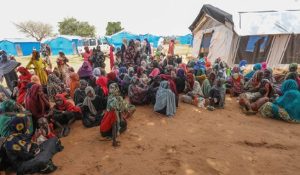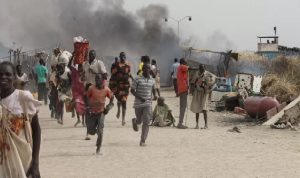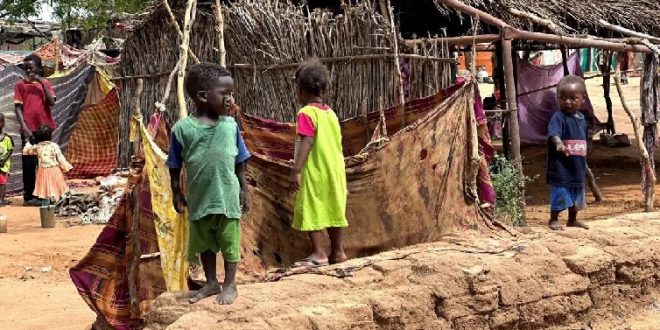06-08-2024
KHARTOUM: Sudan on Sunday denied the existence of famine in North Darfur’s Zamzam camp for internally displaced people, while an aid group said there was a risk of a severe shortage of special food designed to treat malnourished children in the camp.
On Thursday, a global food monitor found that famine, confirmed when acute malnutrition and mortality criteria are met, was present in the Zamzam camp and likely to persist there at least until October.
 Experts and UN officials say a famine classification could trigger a UN Security Council resolution empowering agencies to deliver relief across borders to the most needy, yet Sudanese officials have said that a famine declaration could be a pretext for international intervention in the country.
Experts and UN officials say a famine classification could trigger a UN Security Council resolution empowering agencies to deliver relief across borders to the most needy, yet Sudanese officials have said that a famine declaration could be a pretext for international intervention in the country.
More than 15 months of war in Sudan between the army and the paramilitary Rapid Support Forces (RSF) have created the world’s biggest internal displacement crisis and left 25 million people or half the population in urgent need of humanitarian aid.
Aid agency Medecins Sans Frontieres (MSF) said earlier this year that a child died every two hours in the camp, which holds half a million people. On Sunday it said in a post on X; “our teams only have enough therapeutic food to treat malnourished children in Zamzam camp, Sudan, for another two weeks” but Sudan’s Federal Humanitarian Aid Commission, a governmental body, said on Sunday that talk of famine was inaccurate and conditions were “not consistent” with those that must be met to declare famine.
The Sudanese government blamed the RSF for imposing what it said was a blockade on al-Fashir, capital of North Darfur that led to shortages in food and aid. Al-Fashir is the only significant holdout from the RSF across Darfur.
The RSF on Friday declared “full solidarity” with victims of the famine and repeated an offer to work with the United Nations to facilitate delivery of aid.
A global food monitor concluded on Thursday that war in Sudan had caused famine at a camp for displaced people in North Darfur, and similar conditions may exist elsewhere in the region.
The finding comes amid a deepening hunger crisis across Sudan triggered by war between two military factions, the army and the paramilitary Rapid Support Forces (RSF), which erupted on 15 April 2023.
 Famine is assessed by the Integrated Food Security Phase Classification (IPC), an initiative of more than a dozen UN agencies, regional bodies and aid groups.
Famine is assessed by the Integrated Food Security Phase Classification (IPC), an initiative of more than a dozen UN agencies, regional bodies and aid groups.
It is the main global system for measuring the severity of food crises. It’s most extreme warning is Phase 5, which has two levels, catastrophe and famine.
For famine to be declared, at least 20% of the population in an area must be suffering extreme food shortages, with 30% of children acutely malnourished and two people out of every 10,000 dying daily from starvation or malnutrition and disease.
If the IPC or one of its partners finds that at least one area is in famine, a famine review committee (FRC), led by up to six experts, is activated.
Famine has been declared twice since the process was created: in parts of Somalia in 2011 and in parts of South Sudan in 2017.
While a famine classification does not trigger any formal response, it can focus global attention.
Experts and UN officials say in Sudan’s case, a famine classification could lead to measures including a UN Security Council resolution empowering agencies to deliver relief across borders, similar to one used for Syria in 2014. (Int’l News Desk)
 Pressmediaofindia
Pressmediaofindia




